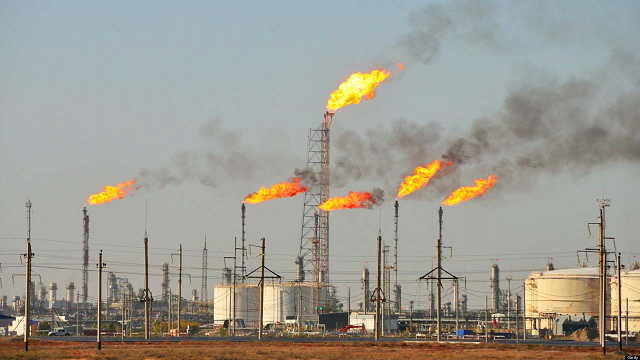Global oil and gas companies are set to increase their investments in fossil fuel exploration by more than 60% by next year, compared to the low levels seen during the 2020 pandemic, according to new data from industry experts. Analysts from Wood Mackenzie, a leading oil and gas consultancy, attribute the surge in investments to a slower-than-expected transition to renewable energy sources.
The report highlights that oil demand may remain robust for longer than initially predicted, prompting major energy companies to ramp up exploration activities. “The main driver has been the dawning realization that the transition is unfolding more slowly than expected, implying that oil and gas demand may be stronger for longer,” Wood Mackenzie analysts stated.
This shift is particularly evident among European oil giants like Shell and BP, who have recently scaled back their aggressive plans to transition to renewable energy. Both companies had previously committed to reducing their reliance on traditional fossil fuels as part of the global push towards cleaner energy, but are now refocusing on their core oil and gas businesses to address production gaps and boost cash flow.
American oil majors and some emerging global players are also pursuing mergers and acquisitions (M&A) to strengthen their upstream portfolios, with more consolidation expected in 2025. BusinessDay’s findings reveal that large oil firms are reinvesting up to 50% of their income on average into exploration and production activities. At the same time, these companies are returning between 35% and 60% of their profits to shareholders in the form of dividends and share buybacks.
“Companies are coalescing around an average reinvestment rate of 50 percent, again assuming $75 per barrel for Brent crude, with major oil companies investing slightly more, while national oil companies (NOCs) invest slightly less,” Wood Mackenzie analysts noted.
Wood Mackenzie also highlighted that a few companies with major development projects are reinvesting up to 80% of their cash flow, which could lead to asset sales to fund shareholder distributions.
The consultancy pointed out that the upstream oil and gas sector has consistently delivered higher returns, historically ranging from 15% to 20%, compared to the renewable energy sector, where projects typically yield returns of up to 8%.
Despite the high-risk nature of offshore exploration, which can take up to five years to develop and another decade to see significant returns, oil and gas exploration continues to be a reliable profit generator for energy majors. As these companies adapt to evolving market conditions, their strategic reinvestments signal a renewed focus on fossil fuel exploration amid an energy transition that is progressing at a slower pace than anticipated.













